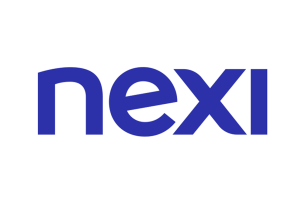Dive Brief:
- Banks supervised by New York’s Department of Financial Services (NYDFS) must ask for prior approval before engaging in any crypto-related activities, the regulator said in issued guidance Thursday.
- Companies already involved in crypto activity must notify NYDFS immediately, the agency said.
- NYDFS consider six broad categories while assessing an institution’s proposal: business plan, risk management, corporate governance and oversight, consumer protection, financials, and legal and regulatory analysis, the agency said. Those seeking approval must also provide a checklist of documents and information for NYDFS to review.
Dive Insight:
NYDFS’s guidance takes a page from several other regulators. The Federal Deposit Insurance Corp. (FDIC) told banks in April to notify the agency if they are engaged in crypto activity.
The Federal Reserve told banks in August to notify their lead point of contact at the central bank to ensure the activity is legal.
The Office of the Comptroller of the Currency (OCC), by comparison, outlined some activities it considered legal — whereas the Fed did not — and permitted banks to engage in those activities so long as they demonstrate they have adequate controls in place and get the regulator’s non-objection first.
In revealing its evaluation criteria, NYDFS may hew closest — at least in amount of detail — to the OCC.
“It is critical that regulators communicate in a timely, transparent manner about the evolution of our regulatory approach,” NYDFS Superintendent Adrienne Harris said Thursday. “Today’s guidance is critical to ensuring that consumers’ hard-earned money is protected, that New York regulated banking organizations remain resilient and competitive, and that the expectations are clear for those that wish to submit proposals for virtual currency-related activity.”
U.S. banks and foreign banks that intend to begin virtual currency-related activity must submit a proposal at least 90 days before they plan to engage in the activity, NYDFS said.
Banks that use third parties to engage in crypto-related activities also must comply with the guidance, the agency said.
The guidance comes amid an implosion in the crypto industry, which has seen several high-profile bankruptcies including FTX, BlockFi, Voyager, and Celsius.
The department’s review process is designed to ensure that supervised institutions have proper financial capabilities and risk management, Harris told The Wall Street Journal.
Though FTX claimed it was seeking a license in New York when it filed for bankruptcy, an NYDFS spokesperson said the crypto exchange did not get the approval, the outlet noted.
Sens. Elizabeth Warren, D-MA, and Tina Smith, D-MN, asked the Fed, OCC and FDIC to review the relationship between banks and crypto firms following the FTX collapse.
The OCC, for its part, reiterated its concern over banks’ approach to crypto assets in its semiannual risk perspective a week ago. The agency advised financial institutions to “take a careful and incremental approach to ensure appropriate controls and risk management practices are in place before scaling or engaging in additional activities.”
NYDFS this month proposed charging state-licensed crypto businesses for supervision and examination.
“As the virtual currency industry evolves, DFS is leading by doing, and will remain committed to keeping New York the model for robust, forward-looking regulation,” the agency said at the time.


